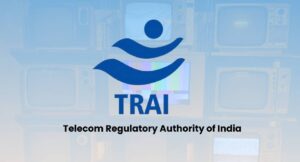Broadcast and video streaming platforms are bracing for the customary drop in viewership during the ongoing season of the Indian Premier League. These services, primarily focused on entertainment programming, anticipate a 20% decline in viewership and engagement for non-sports genres and in most cases, find it wise to defer new big-ticket releases until the end of the cricket tournament.
Some OTT platforms will adopt marketing strategies to maintain user engagement and attract new viewers during the IPL season, which is on from 22 March to 25 May this year. They will continue with niche programming targeted at varied segments in order to lure viewers not interested in cricket or sports as a whole.
“The IPL draws a massive audience, particularly among male viewers, leading to a shift in engagement,” said Nitin Gupta, chief content officer at Chaupal, a platform specialising in Punjabi, Haryanvi and Bhojpuri content. “This could result in a temporary dip in daily viewership and may deter major releases during the season.”
Platforms that target male consumers could face a challenge with ad revenue at this point and those with smaller marketing budgets or limited resources may struggle to secure ad slots during the season, Gupta added. However, platforms with premium content can still benefit by targeting audiences who are less interested in cricket, such as female viewers or those looking for different entertainment options.
Ad revenue
Advertising money on IPL will always flow and during this time, there is definitely a 25-30% impact on every aspect of the business across linear TV and OTT, according to Navin Kathuria, executive vice-president at media agency Mudramax.
“OTT is a very different beast given that it is not appointment viewing and if there is content that is gripping enough, then people binge watch – whether it is during the evenings, through the night or through the weekend. However, matches begin and end at a particular time and that is the only time you can view it live, so while it is the largest impact property, consumption will be skewed towards IPL,” Kathuria said.
Sujata Dwibedy, CEO of dentsu X India, emphasised that IPL has been running on OTT for a while now and the trend mirrors what happens on television.
“Every year during IPL, the platform which airs the tournament sees a huge surge in viewership and then it tapers down. But mobile viewers are individual viewers, so each one can choose to run their own preference on their screens. The dip comes from single CTV (connected TV) households, where co-viewing increases on sports, hence the entertainment genre suffers,” Dwibedy pointed out.
Experts agreed that the IPL consistently dominates prime time attention and reshapes media consumption patterns during its run. Munish Raizada, vice-president of Primus Partners, a management consultancy firm, said this kind of viewership diverts attention away from competing OTT platforms and also leads to delays in high-profile content releases.
“Though IPL is viewed as a live event, which runs for a limited duration, the average viewing time of OTTs in India is approximately 70 minutes a day. Viewers prefer to watch IPL when the season is on and do not intend to watch content on other OTT platforms during this time,” Raizada said.
Strategy, profile
He added that the extent of the impact also depends on a platform’s content strategy and audience profile. Generally, platforms schedule major releases before or after the IPL season. This way, they are able to mitigate the risk of low traction. Also, catering to non-cricket-watching segments can help maintain daily active users, to an extent.
Platforms that focus on regional and niche content cater to a highly engaged and loyal audience that seeks out hyper-local, culturally rich storytelling beyond mainstream cricket entertainment, said Kaushik Das, founder and CEO of AAONXT, a platform specialising in Odia content. Regional players continue to thrive by offering content that IPL does not compete with—original narratives rooted in local storytelling.
“OTT platforms focusing on niche content such as original web series or regional language content might not be significantly impacted. Some services will also adopt targeted marketing strategies to maintain user engagement and attract new viewers during this IPL season,” said Rajat Agrawal, chief operating officer of Ultra Media & Entertainment Group. LiveMint








